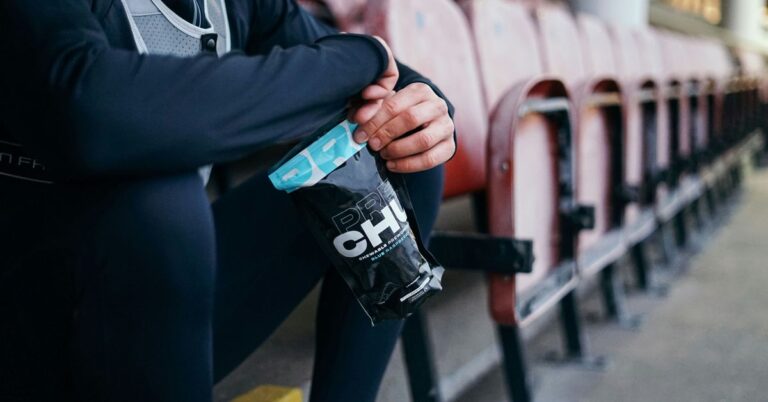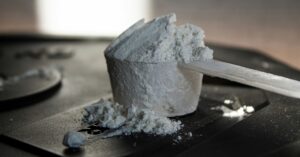Expert Insights: The Must-Try Supplements That Actually Make a Difference
In the ever-evolving world of health and fitness, the supplement market can feel like a labyrinth, filled with shiny bottles and promises that often lead to dead ends. As a sports journalist, I’ve spent years navigating this maze, interviewing fitness experts, athletes, and nutritionists. Along the way, I’ve gathered insights that are worth sharing, especially for those looking to enhance their performance or simply feel better in their day-to-day lives. So, which supplements truly stand out? Let’s dive in.
The Case for Supplements
Before we get into the nitty-gritty of specific supplements, it’s important to acknowledge why many folks turn to these pills, powders, and shakes in the first place. I remember chatting with a friend who, after years of training, felt like they hit a wall. Their workouts plateaued, energy levels dipped, and recovery turned into a sore, grueling affair. That’s when they turned to supplements, hoping for a miracle. But the truth is, while some can be game-changers, others are just marketing fluff.
Supplements can help fill nutritional gaps, support performance, or aid recovery. Yet, it’s crucial to remember that they should complement—not replace—a balanced diet. With that said, let’s explore some of the must-try supplements that, according to experts and scientific studies, actually make a difference.
1. Creatine: The Powerhouse
If there’s one supplement that’s consistently backed by research, it’s creatine. Often found in red meat and fish, creatine is a naturally occurring compound that helps provide energy during high-intensity exercise. You might have heard the tales of its ability to enhance strength and muscle mass. Well, those tales are rooted in science.
Studies have shown that creatine supplementation can improve performance in short bursts of high-intensity activities—think sprinting or weightlifting. Dr. Matthew Barnes, a sports nutritionist, once told me, “For athletes looking to increase their power output, creatine is a no-brainer.” It typically yields noticeable results within a few weeks, making it an appealing option for those looking to push their limits.
But here’s the kicker: not everyone responds to creatine in the same way. Some individuals, often referred to as “non-responders,” may not experience significant benefits. Nevertheless, for many, it can lead to improved performance and muscle growth.
2. Omega-3 Fatty Acids: The Heart Helpers
Let’s talk about omega-3 fatty acids. These essential fats—found in fatty fish, walnuts, and flaxseeds—are often hailed as the superheroes of the supplement world. They’re well-known for their cardiovascular benefits, helping to reduce inflammation and support heart health. But their advantages don’t stop there.
Several studies suggest that omega-3 fatty acids can also enhance cognitive function and even mood. I had an enlightening conversation with Dr. Sarah Thompson, a registered dietitian, who pointed out, “With the increase in sedentary lifestyles, omega-3s can be a simple yet effective way to support overall health and wellness.” Talk about a double win!
For those who don’t consume enough fish, omega-3 supplements, like fish oil or algal oil (a plant-based alternative), can be beneficial. Just remember to check the source and the quality of the oil you’re taking. It’s worth it to invest in a reputable brand.
3. Protein Powders: The Convenient Companion
Ah, protein powder—the trusty sidekick of many fitness enthusiasts. Whether you’re a bodybuilder, a weekend warrior, or just someone who wants to ensure they’re meeting their protein needs, protein powders can play a significant role. They come in various forms, including whey, casein, soy, and pea protein, catering to different dietary preferences.
What’s the magic behind protein? It helps in muscle recovery and growth. After an intense workout, your muscles are like sponges, eagerly soaking up the nutrients they need to repair. I remember my first experience with protein powder after a grueling leg day. I felt like a superhero mixing my shake, and surprisingly, it did help with recovery.
Research indicates that consuming protein post-workout can enhance muscle protein synthesis. However, it’s essential to choose a protein powder that suits your tastes and dietary restrictions. After all, no one wants to choke down a chalky shake!
4. Vitamin D: The Sunshine Vitamin
In a world where many of us are glued to our screens indoors, it’s no wonder vitamin D deficiency is a growing concern. Often dubbed the “sunshine vitamin,” vitamin D plays a crucial role in bone health, immune function, and even mood regulation. Since our bodies synthesize vitamin D when exposed to sunlight, those of us living in less sunny climates might need a little extra help.
Research suggests that vitamin D can also aid in muscle function and recovery. A study published in the Journal of Clinical Endocrinology & Metabolism found that athletes with adequate vitamin D levels performed better than those who were deficient. My own experience echoes this; after incorporating a vitamin D supplement into my routine, I noticed an improvement in my energy levels, especially during the winter months.
Before diving headfirst into supplementation, it’s wise to get your levels checked by a healthcare professional. After all, moderation is key—too much vitamin D can lead to some unwanted side effects.
5. Magnesium: The Unsung Hero
Let’s not overlook magnesium, often referred to as the unsung hero of the supplement world. This mineral is vital for numerous bodily functions, including muscle contraction, nerve function, and energy production. Despite its importance, many people are unknowingly deficient in magnesium, which can lead to fatigue, muscle cramps, and even anxiety.
In my conversations with fitness trainers, magnesium often comes up as a go-to recommendation for those struggling with muscle recovery. Several studies have shown that magnesium supplementation can help reduce exercise-induced muscle soreness and improve recovery time. It’s like giving your body a gentle hug after a tough workout.
Magnesium comes in various forms, including magnesium citrate and magnesium glycinate. Each has its unique benefits and absorption rates, so it’s worth doing a bit of homework to find the right one for you. And let’s be real—nobody wants to deal with digestive issues that can come with some forms of magnesium.
6. Probiotics: The Gut Guardians
We’re starting to uncover just how crucial gut health is to our overall well-being. Enter probiotics—those friendly bacteria that can help maintain a healthy gut flora. Probiotics can support digestion, enhance immune function, and even improve mood. The gut-brain connection is a hot topic these days, and for good reason.
After a bout of stomach issues a few years back, I was introduced to probiotics. I was skeptical at first, but over time, I noticed improved digestion and even a boost in my energy levels. While individual results may vary, research suggests that probiotics can be beneficial, particularly after antibiotic use or during periods of stress.
When choosing a probiotic supplement, look for one that contains a variety of strains and a high CFU (colony-forming unit) count. It’s like choosing a diverse team to tackle gut health—more players can mean better results!
7. B Vitamins: The Energy Boosters
Let’s not forget about the B vitamins, a group that plays a crucial role in energy metabolism. B vitamins, including B6, B12, and folate, help convert food into energy, support brain health, and even assist in red blood cell formation. Many athletes swear by B vitamin supplementation, especially during training seasons.
I recall a time when I was training for a half-marathon. I felt sluggish and drained until I started taking a B-complex vitamin. It was as if a light switch flipped, and I had more energy to tackle those long runs. Of course, it’s essential to maintain a balanced diet rich in whole foods, as it’s the best way to obtain these vitamins naturally.
For those who follow a vegetarian or vegan diet, B12 is particularly important, as it’s primarily found in animal products. In such cases, a supplement may be necessary to prevent deficiency.
8. Caffeine: The Performance Enhancer
Ah, caffeine—the magical potion that powers countless early mornings and late-night study sessions. Not only does it provide a much-needed energy boost, but research also shows that caffeine can enhance athletic performance. It’s been linked to improved endurance, increased strength, and even a better focus during workouts.
Many athletes use caffeine strategically before workouts or competitions to tap into its performance-enhancing benefits. I’ll never forget the first time I tried a pre-workout supplement containing caffeine. It felt like I had rocket fuel in my system! Just remember, moderation is vital; too much caffeine can lead to jitters and an uncomfortable crash.
9. Curcumin: The Anti-Inflammatory
Curcumin, the active compound found in turmeric, has gained popularity for its anti-inflammatory properties. It’s no secret that inflammation can hinder recovery and performance. Athletes often seek natural ways to combat this, and curcumin has emerged as a promising option.
Various studies suggest that curcumin supplementation can reduce markers of inflammation and improve recovery after intense exercise. I once tried a turmeric latte after a particularly tough workout, and while it was delicious, I also felt a sense of relief in my sore muscles. Perhaps it was the power of suggestion, but many athletes swear by curcumin’s benefits.
When considering curcumin supplements, look for formulations that include black pepper extract (piperine), which enhances absorption. It’s like giving curcumin a little boost to work its magic!
10. Branched-Chain Amino Acids (BCAAs): The Muscle Protectors
Last but not least, let’s chat about branched-chain amino acids (BCAAs)—leucine, isoleucine, and valine. These essential amino acids are popular among athletes looking to minimize muscle soreness and promote recovery. They play a crucial role in muscle protein synthesis and can help stave off muscle breakdown during intense workouts.
Many fitness enthusiasts swear by BCAA supplements, especially when training fasted. I remember trying a BCAA drink during a particularly grueling training session, and it felt like a breath of fresh air in terms of energy and endurance. However, it’s worth noting that if you’re consuming enough protein through your diet, you might be getting sufficient BCAAs already.
Final Thoughts: Personalizing Your Supplement Routine
With so many supplements on the market, it can be overwhelming to know where to start. What works wonders for one person may not resonate with another. It’s essential to consider your individual goals, dietary preferences, and any underlying health conditions.
Speaking to experts, like nutritionists or healthcare professionals, can provide valuable insights tailored to your needs. And remember, supplements should complement a balanced diet rich in whole foods. After all, there’s no magic pill that can replace the benefits of real, nourishing food.
In conclusion, whether it’s creatine for that extra edge in the gym or omega-3s for overall health, there are indeed supplements that can make a difference. Just like finding the perfect workout routine, discovering the right supplements is a personal journey. So, gear up, do your research, and embark on your journey toward better health and wellness. And who knows, maybe you’ll find that elusive supplement that feels like your own personal secret weapon!













